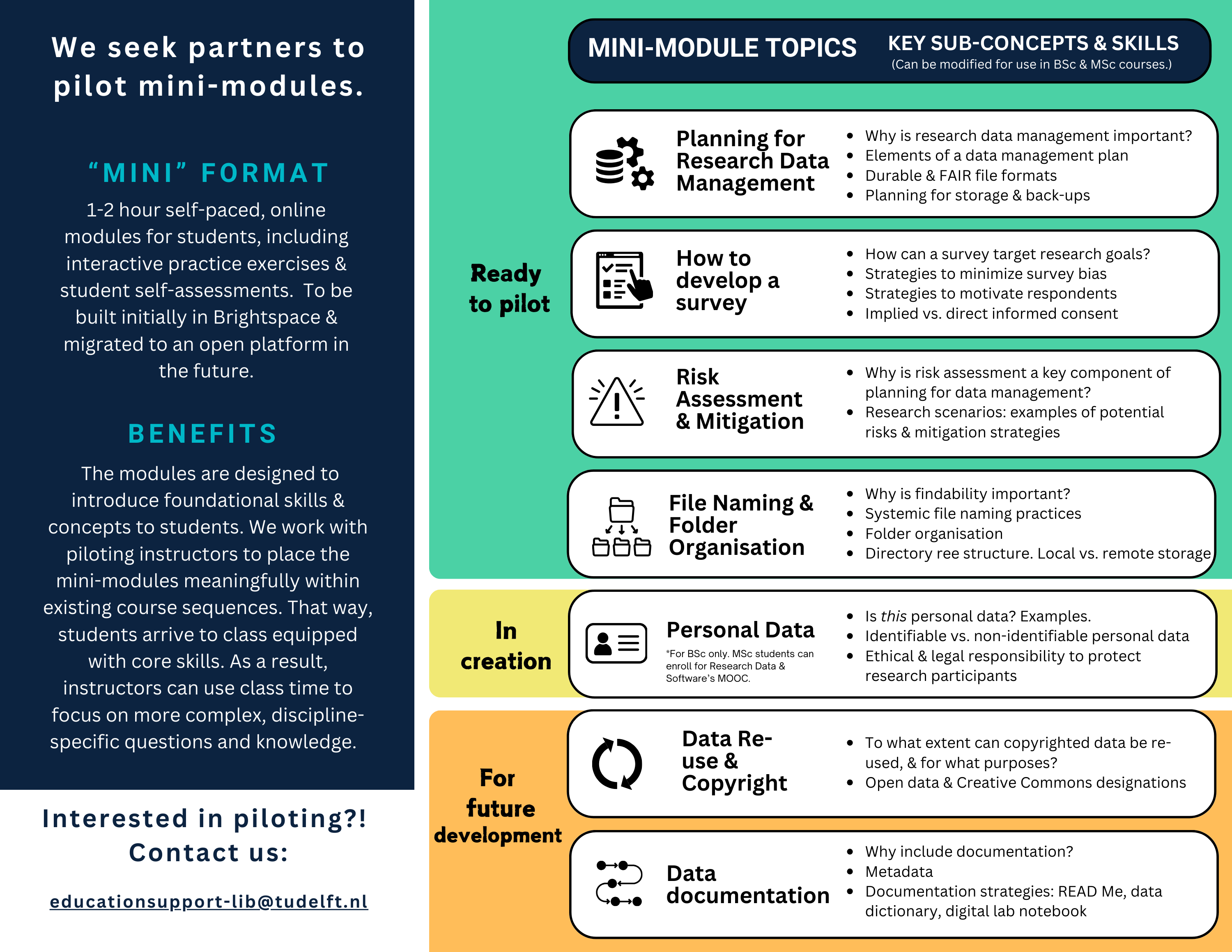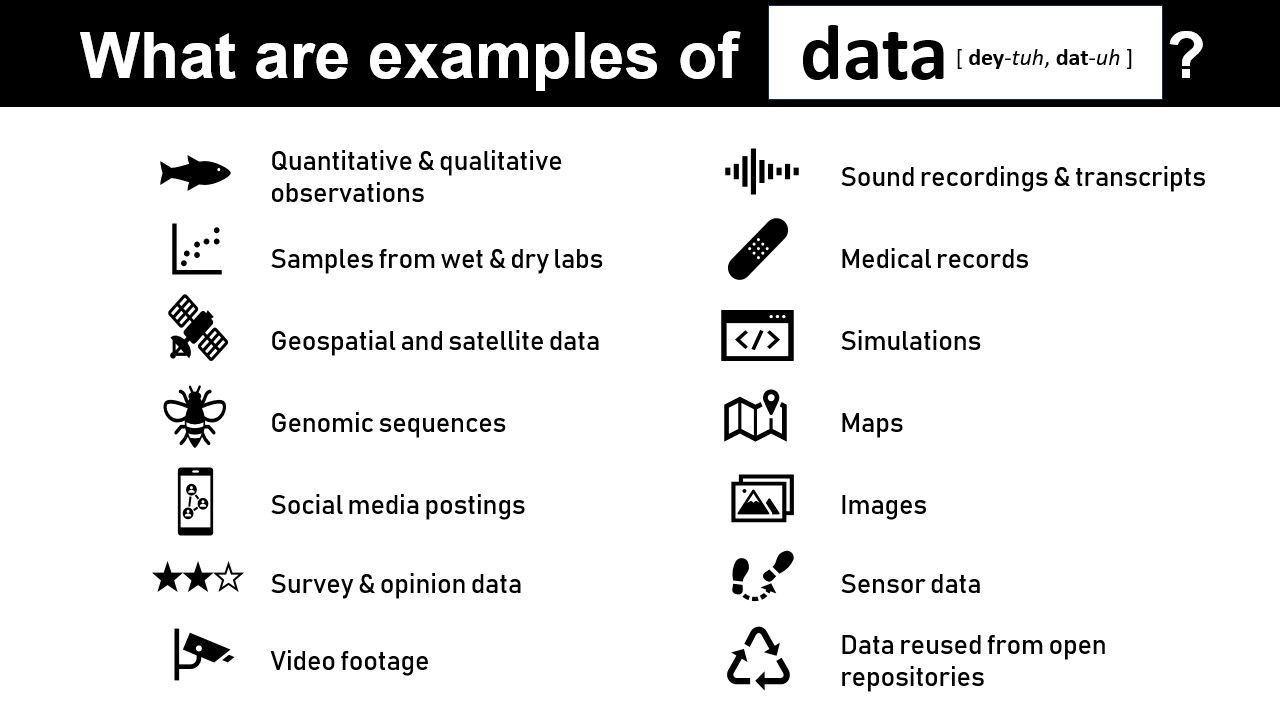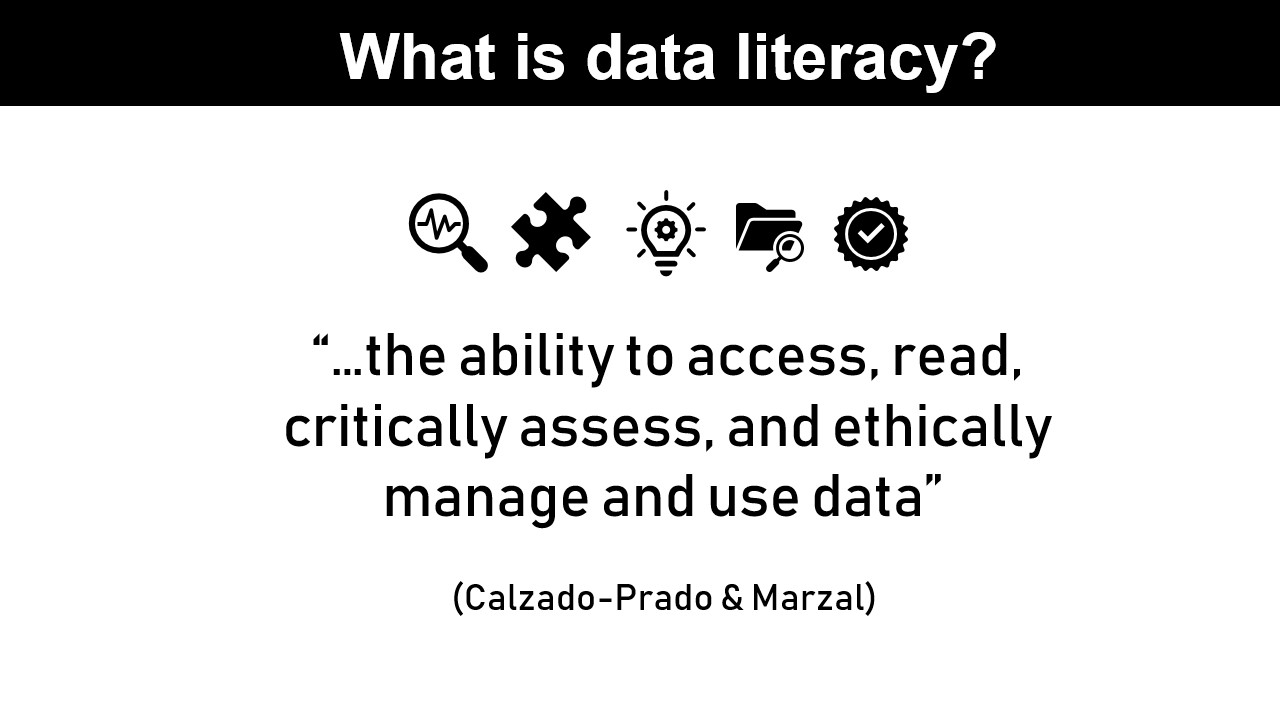Data Literacy Project
What is The Data Literacy Project at TU Delft?
The Data Literacy Project was launched in March 2023 as an initiative of the TU Delft Library’s Open Science Programme. The project aims to partner with BSc and MSc programs on the TU Delft campus to support data literacy skill development for bachelor’s and master’s students. An early and important phase in the project was inventorying the needs and wishes of the faculties through one-on-one listening sessions with instructors and course coordinators, and through the distribution of a campus-wide survey (October 2023). The survey results indicated that BSc and MSc educators are interested in reinforcing the following core data literacy skills with students:
- Locating sources of secondary (re-used) data
- Naming specific data outputs to be collected during research
- Evaluating the reliability of data
- Planning for research data management
- Handling sensitive data (human research data)
- Handling proprietary and copyrighted data
- Organizing digital files and folders
- Applying FAIR principles
- Critically reflecting on the ethics of data
Data Literacy Pilot Modules
The Data Literacy Project is now partnering with data stewards, Research Data & Software trainers, and course coordinators/instructors to develop and pilot engaging learning materials. Data literacy mini-modules are designed to fit into and enhance existing academic course sequences. We aim to collaborate with the faculties to promote key data literacy skills across disciplines at TU Delft.
-
Planning for Research Data Management
- Why is research data management important?
- Elements of a data management plan
- Durable & FAIR file formats
- Planning for storage & back-ups
How to develop a survey
- How can a survey target research goals?
- Strategies to minimize survey bias
- Strategies to motivate respondents
- Implied vs. direct informed consent
Risk Assessment & Mitigation
- Why is risk assessment a key component of planning for data management?
- Research scenarios: examples of potential risks & mitigation strategies
File Naming & Folder Organisation
- Why is findability important?
- Sestemic file naming practices
- Folder organisation
- Directory ree structure. Local vs. remote storage
-
Personal Data
- Is this personal data? Examples
- Identifiable vs. non-identifiable personal data
- Ethical & legal responsibility to protect research participants
-
Data Reuse & Copyright
- To what extent can copyrigted data be reused, & for what purposes?
- Open data & Creative Commons designations
Data Documentation
- Why include documentation?
- Metadata
- Documentation strategies: READ Me, data dictionairy, digital lab notebook
Why is data literacy important?
Data literacy skills are essential to participation in an Open Science Community. Data literate students are better equipped to manage research data, to think critically about and adjust their research design, and to access the complex, technical, and domain-specific knowledge required for their coursework. Beyond TU Delft, data literacy allows students to participate more fully in an increasingly data-driven society. Every TU Delft graduate should have a solid basis in data literacy, which will be valuable not only when students pursue a career in academia or industry, but also in their everyday life as informed citizens.
Why does this project seek to serve bachelor's and master's students?
The Data Literacy Project was launched to create a continuum of support for key data literacy skills across educational levels at TU Delft. Currently, doctoral candidates are offered supports like the Research Data Management 101 course and partnership with the TU Delft Data Stewards on data management plans. The Data Literacy Project seeks to equip BSc and MSc students with foundational skills in data literacy that align and sequence to the demands at the PhD level.
Project partners:
Additional information about Data Literacy:
-
Data Literacy is a skillset that crosscuts all academic disciplines. This graphic demonstrates how data literacy intersects with Data Science, Mathematics, and other scientific fields. Data management skills are a key aspect of data literacy which are not represented in this graphic.


